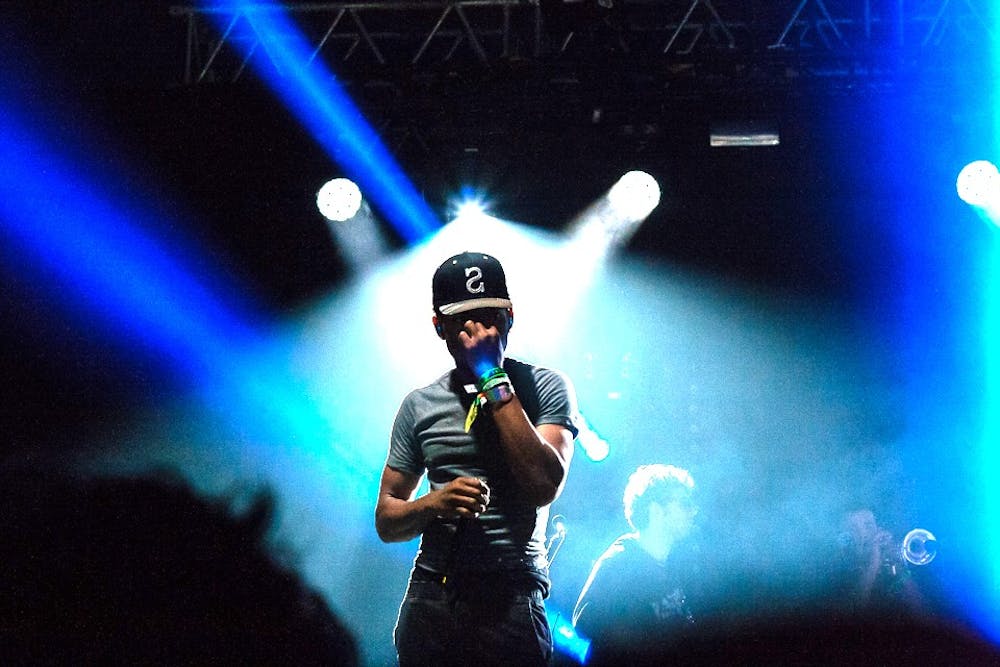When Chance the Rapper dropped "Coloring Book" almost a year ago, I was nearing the end of high school, and my best friends and I were driving early one morning before school to watch the sunrise on Lake Michigan. I immediately fell in love with the catchy hooks, goofy laughs and nonsensical yelps that filter through his lyrics.
I spent the following day memorizing every single lyric to "All Night" before starting to listen through his first two mixtapes. I spent every free moment I had blasting Chance, whether it was nearly blowing out the speakers in my car during "Chain Smoker" or running through the entire "10 Day" album. I quickly began to admire how Chance channels his frustrations and feelings of hopelessness from high school and throughout his life into poetic and unflinchingly honest lyrics.
He managed to take his 10-day suspension (after being caught smoking weed in the parking lot of his high school) and turn it into music that inspired his peers and future listeners to recognize that failure is only what you make of it. He motivated me to start writing every day and solidified my ambition to become a journalist and eventually an author.
Anyone can have talent, and with enough luck that talent can propel the brightest artists to the top of the music industry. But Chance is so much more than just a talented rapper. Unlike his role model and equally famous Chicago-native rapper, Kanye West, Chance has not let his fame or early successes inflate his ego.
He regularly advocates on Twitter for high school students to attend "Open Mike" events at the Harold Washington Library Center that he went to as a teenager. When Jordan Peele's "Get Out" premiered in theaters earlier this year, Chance took the opportunity to rent out a theater one weekend for a screening in his neighborhood of Chatham. He is a father, an activist and a true artist who is devoted to his fans more than anything or anyone else.
Following his sweep at the Grammy's this past February, Chance received national acclaim. He refuses to sign with a label, yet his songs have gained increasingly consistent airplay on the radio without him ever selling a single album.
After Illinois governor Bruce Rauner tweeted his congratulations to Chance following the Grammys, the rapper replied, asking the governor for a sit-down meeting to discuss the state of funding for Chicago Public Schools (CPS). When the meeting went poorly, Chance committed to donating $1 million dollars to 100 schools in the CPS system, presenting $10,000 dollar checks to third grade classrooms during the first week of March.
His efforts to rehabilitate Chicago's educational system are both admirable and unprecedented for the average American rapper, let alone a 23-year-old kid who has reached unfathomable success at such a young age. Chance's passion for activism and inner obligation to help those less fortunate is a rousing change of pace for all musical artists, and I'm proud to call him one of my favorite musicians.




